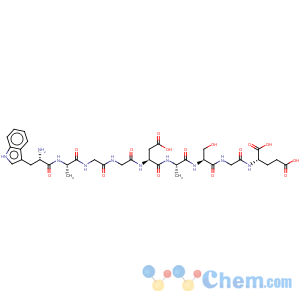DSIP
-
- Product NameDSIP
- CAS No.62568-57-4
- Purity99%
- Min Quantity1Kilograms
- Price35.20~59.30

 View Contact Detail
View Contact Detail
-
 Molecular Structure
Molecular Structure
Detailed Description
DSIPModel NO.:2mg/vial
CAS:62568-57-4
Purity:99% Min.
Appearance:Lyophilized Powder
Specification:2mg/Vial
Molecular Formula:C35h48n10o15
Molecular Weight:848.81
Einecs:N/a
Export Markets:Global
Trademark:Shuangbojie
Packing:Vials
Standard:2mg/vial
Origin:China
HS Code:3001200010
Production Capacity:5000000vials
Bodybuilding drug,Muscle building drug,Sex enhancement drug, Growth building drug,Weight loss drug,Estrogen Hormone, Local Annesthetic Drug,Antineoplastic Crude Drug...
Delta sleep-inducing peptide (DSIP) is an endogenous peptide that crosses the blood-brain barrier, named after its association with natural sleep and enhanced electroencephalogram (EEG) delta rhythm. The objective of this study was to determine whether DSIP could be used as an adjunct to volatile anaesthesia in humans, our hypothesis being that DSIP is a natural hypnotic that would increase anaesthetic depth. The aims were to assess depth of anaesthesia using bispectral index (BIS), the EEG and heart rate variability (HRV), and to determine whether DSIP altered the symmetry of EEG between the left and right cerebral hemispheres.
METHODS:
Twenty-four female ASA I or II patients gave written, informed consent to a protocol approved by our local research ethics committee. Twelve were randomly assigned as controls to receive saline. The other 12 were randomly allocated to receive one of three intravenous bolus doses of DSIP (Clinalfa) at 25, 50 or 100 nmol kg(-1). The first administration of DSIP was while awake and the second after induction of anaesthesia with propofol and maintenance with isoflurane. BIS and EEG parameters were measured continuously using a bilateral electrode montage.
RESULTS:
DSIP significantly increased heart rate, decreased HRV and, paradoxically, significantly reduced delta rhythm along with reducing burst suppression and increasing BIS at 25 nmol kg(-1) during isoflurane anaesthesia. DSIP also significantly altered bilateral symmetry of EEG.
CONCLUSION:
DSIP probably reduced parasympathetic tone and decreased (lightened) the depth of anaesthesia measured using BIS.